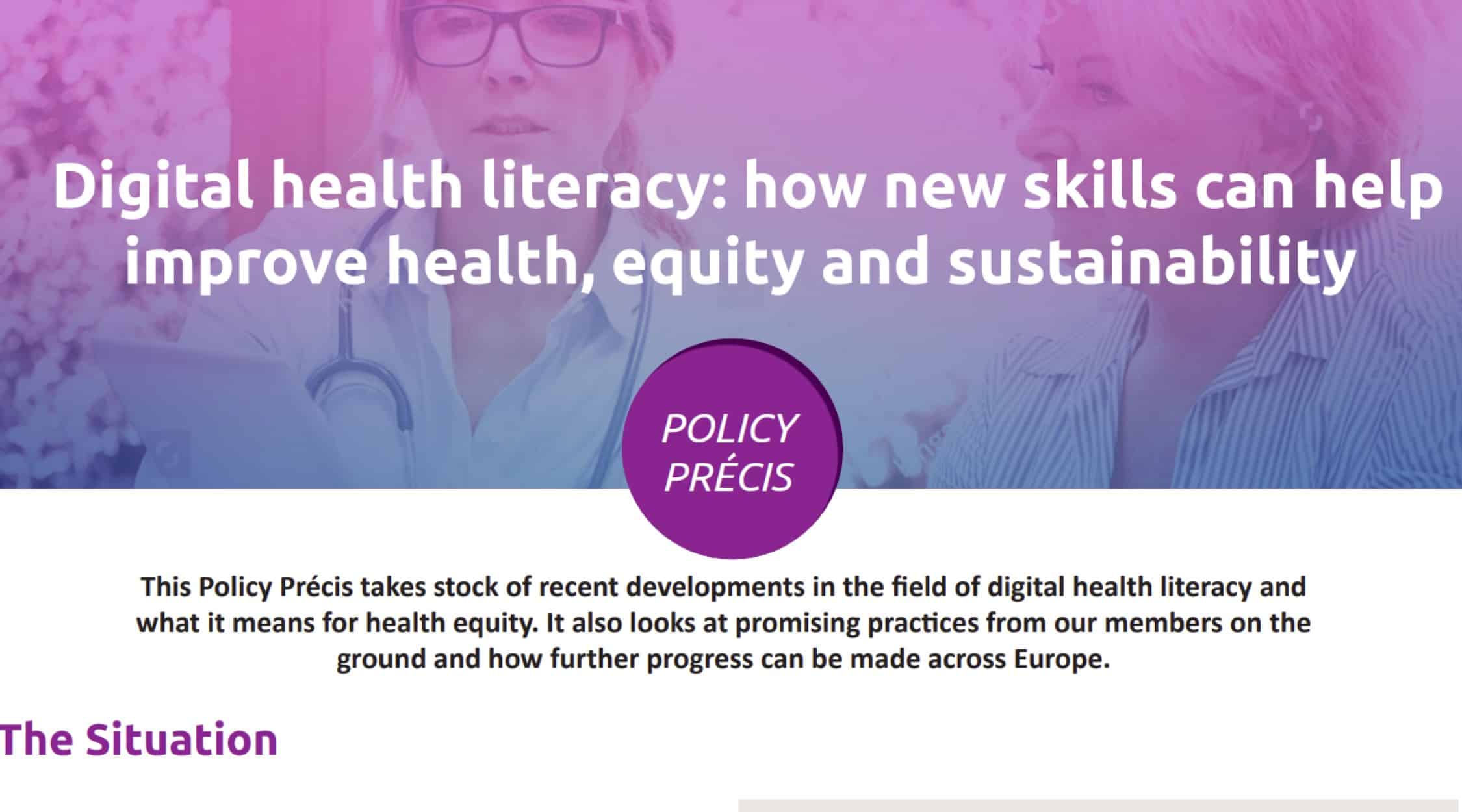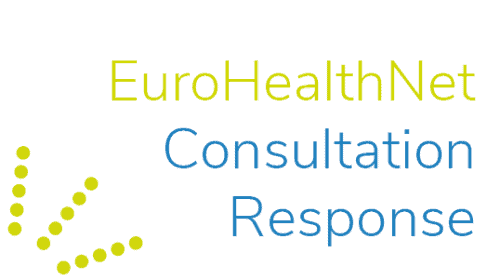Digital health literacy: how new skills can help improve health, equity and sustainability

The effective and equitable digital transformation of health systems could have many benefits. People who are digitally health literate – those that can gain and use knowledge from electronic sources to solve a health problem – are more able to manage personal health and care issues. Better prevention models can be developed, and healthy behaviours supported.
However, there is a risk that the most vulnerable people are left behind in the transition.
People with lower social and economic status have a higher burden of disease. They also face more barriers to accessing and using information. Ensuring that they benefit from the digital transition requires action within health and other sectors; innovation within states and companies; the development of professionals and services; and wider improvements in education, and social justice and inclusion.
EuroHealthNet has published a Policy Précis examining digital health literacy and what it means for health equity. It examines what can and is being done to support those most in need. EuroHealthNet’s response to the European Commission Consultation on the future of investment in Europe’s digital economy has also been published.
Read our Policy Précis on digital health literacy.
Why are people at risk?
Digital health literacy is shaped by economic, environmental, cultural, and societal factors. People facing socio-economic disadvantages may have less access to and ability to use information. They may be less aware of issues around data use and privacy, and less able to effectively evaluate the proliferation of questionable and marketing messages found online.
What is the link between health inequalities and europe’s digital economy?
The proposed ‘Digital Europe Programme’ will see a potential investment of €9.2 billion between 2021 and 2027 to increase the EU’s international competitiveness as well as to develop and reinforce Europe’s strategic digital capacities.
Digital innovation can transform health systems, enabling new approaches to personalised prevention and promotion, treatments and care.
There is a risk of increasing inequalities if factors such as access, effectiveness, and safety are not considered. Equality, and importantly inequalities could be reduced if costs fall and access to public services such as health and education are increased.
What do we do now about digital health literacy?
Ensuring the digital transition works for everyone requires cohesive action from many areas. The new Policy Précis looks at policies, protections, practices that are needed, as well as actions amongst the public and professionals. Specific best practice examples are included.











